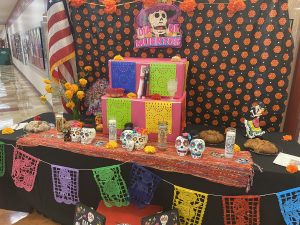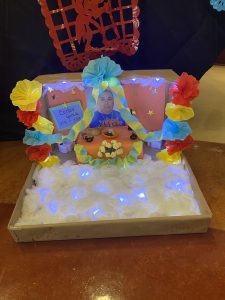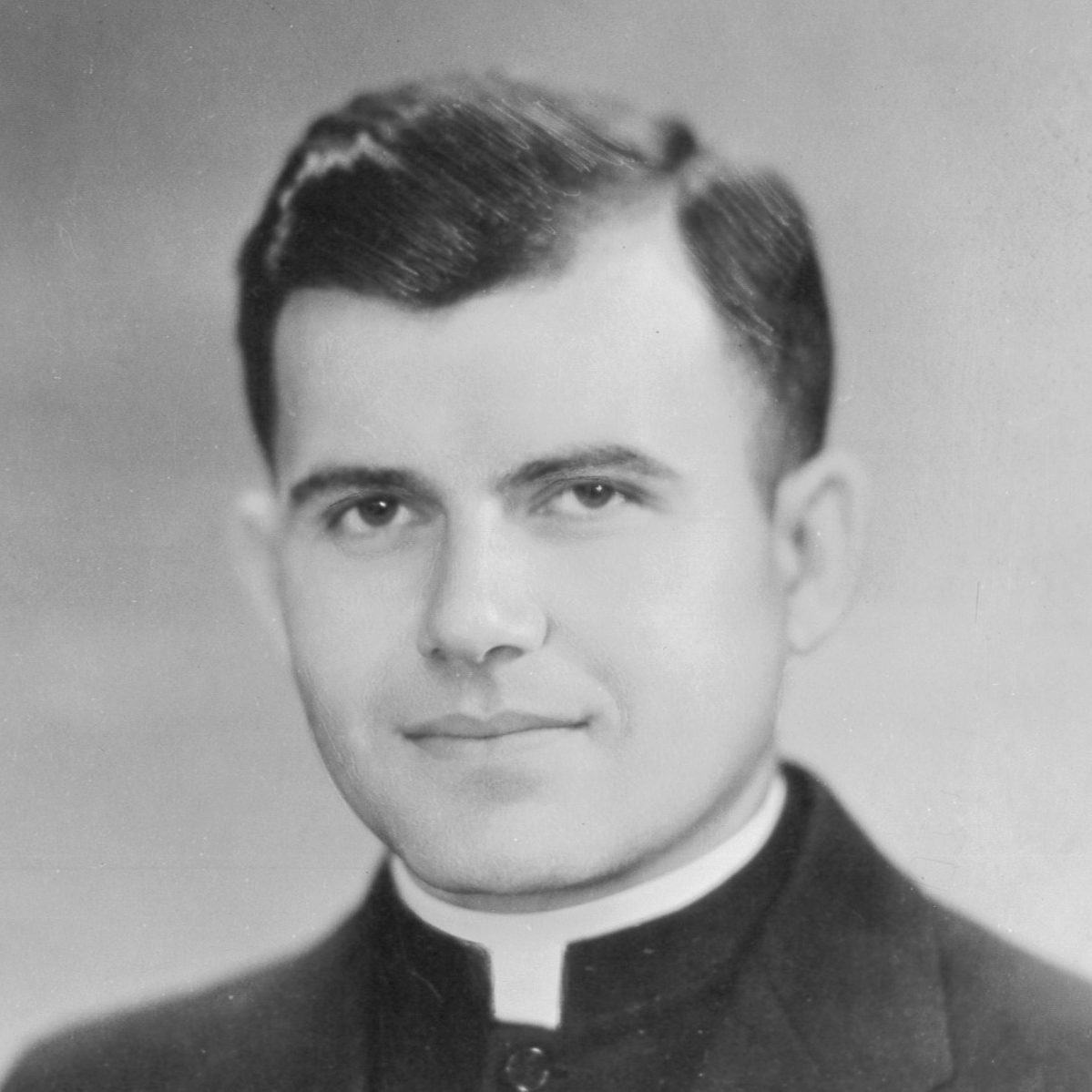Scecina celebrates Día de los Muertos (Day of the Dead)

Día de los Muertos, or Day of the Dead, is a holiday celebrated in México and other Spanish-speaking countries each year Oct. 31 through Nov. 2. It is associated with, but somewhat different from, the Catholic commemorations of All Saints Day (November 1) and All Souls Day (November 2).
“We believe that it is the one time a year when our departed come back to celebrate with us,” said Mrs. Nancy Greathouse, Scecina Spanish teacher and moderator of the Spanish Club.
“It is a two-day celebration,” she said. “On November 1 we remember children, while on November 2, we remember the adults. Families create ofrendas (offering) to honor their loved ones that have passed.”

One student created an ofrenda that lights up.
Ofrendas, or altares, are what the whole celebration is about, she said. “It is a collection of offerings dedicated to the person being honored. Altars are very colorful and usually have pictures of the departed, flowers, food, candles, and other special items.”
Scecina’s Open House for prospective students is Nov. 4
For the past few years, Scecina’s Spanish Club has been decorating an Altar for the Dead. It is located next to the rotunda.
“Many of us see death as a sad event, but those who celebrate Day of the Dead view death as a welcome part of life,” said Mrs. Greathouse.
Mrs. Greathouse and the Spanish Club invited others at the school to join them in celebrating by placing a picture of their loved ones who have passed away on the altar. Also, there will be cards for people to write their name on the altar.
Mrs. Greathouse’s Spanish students created their own small ofrendas to remember their loved ones. Some ofrendas were quite detailed. One even has lights and tiny plastic replicas of food that her loved one enjoyed, including tamales and sweet bread.
According to uscatholic.org, Día de los Muertos and All Souls Day observances remember the dead. According to uscatholic.org, Día de los Muertos and All Souls Day observances both commemorate the dead.
“Their ways of remembering, though, go in somewhat different directions. All Souls Day remembers and prays for ‘all the faithful departed; Día de los Muertos welcomes the return of the departed for a yearly family visit. All Souls Day and Día de los Muertos come from different places as well. The latter has roots in Mexico’s pre-Spanish civilization and its beliefs and practices relating to death, while the former has a firmly European heritage.”
The solemnity of All Saints Day on Nov. 1 is a holy day of obligation in the Catholic Church.

